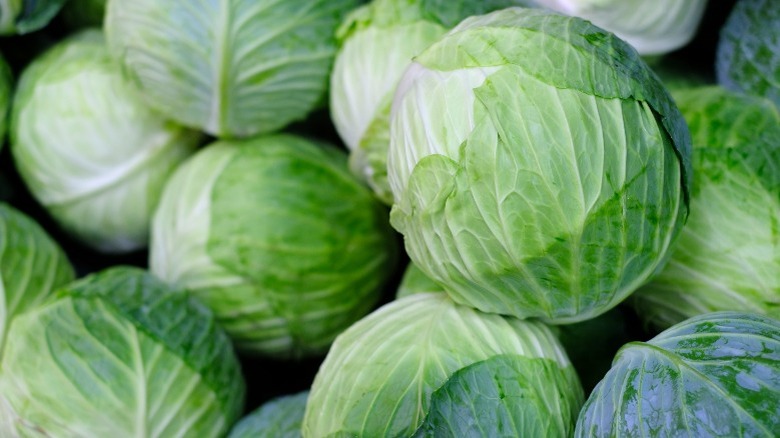The Vegetable You Need To Eat For Osteoarthritis
If you've been feeling pain in your joints lately, you may be suffering from osteoarthritis. According to experts at the Mayo Clinic, osteoarthritis is a degenerative disorder that occurs "when the protective cartilage that cushions the ends of the bones wears down over time." Cartilage is the tissue that keeps your bones from rubbing against each other and allows your joints ease of motion.
Osteoarthritis is considered the most common form of arthritis worldwide, so if you have osteoarthritis, know that you are in good company. In the United States, at least 1 in 10 people over the age of 60 will experience osteoarthritis in the knees, according to a 2011 peer-reviewed article published in Clinics in Geriatric Medicine.
There are many reasons you could be at risk for osteoarthritis. Main factors are related to your sex — women tend to be diagnosed with the condition more than men — aging, obesity, injuries, genetics, and various other circumstances.
You might have osteoarthritis if you experience stiffness, swelling, less flexibility, or other uncomfortable symptoms in your hands, knees, hips, or spine. While there is no cure for osteoarthritis and it can worsen over time, there are ways you can manage the pain and maintain the function of your joints.
Go to the produce aisle for potential relief
According to the Arthritis Foundation, you may be able to manage osteoarthritis through your diet, specifically by eating certain vegetables. The reason some vegetables can be beneficial is due to their inherent antioxidants, which have anti-inflammatory properties. The experts at the Arthritis Foundation suggest selecting colorful vegetables, such as dark leafy greens (spinach, kale, broccoli, Brussels sprouts); vegetables rich in a vitamin-A forming carotenoid called beta-cryptoxanthin (sweet potatoes, carrots, squash); red and green peppers; and onions, garlic, and leeks.
Another vegetable you may want to try is cabbage. Dr. Eric Berg, a licensed chiropractor who specializes in healthy approaches to ketosis and intermittent fasting, says that if you have joint pain, eating cabbage leaves or sauerkraut could help. The reason consuming cabbage can be effective in targeting osteoarthritis is because the fiber in it supports your gut's microbiome. This creates a better environment for the production of friendly bacteria and anti-inflammatory agents.
"Research is ongoing, but scientists already have found that certain foods may reduce arthritis-related inflammation and pain," registered dietitian Andrea Dunn, told the Cleveland Clinic.
If your joints are feeling creaky, try a fun meal mix-up of healthy types of hot dogs with lots of sauerkraut. Eat spinach and kale salads, and try a side of Brussels sprouts with antioxidant-rich main dishes, such as salmon and tuna. See if you notice any improvements.


